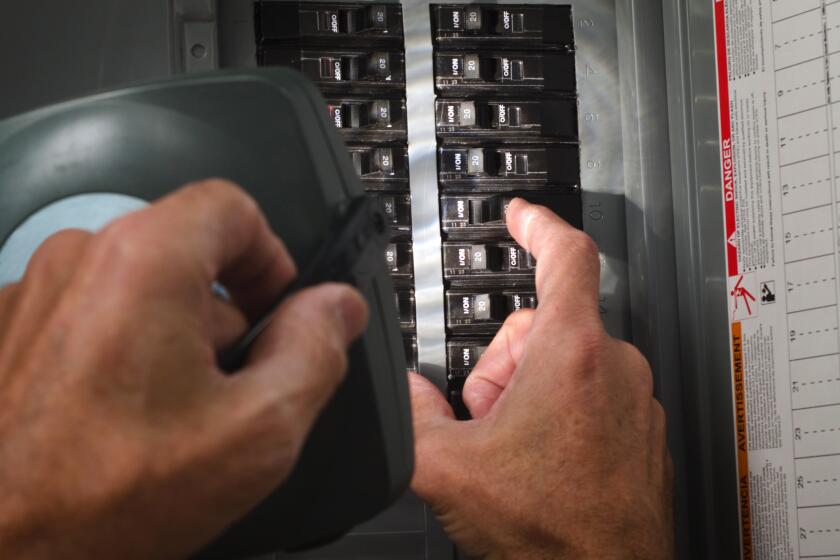Police Hope TV Show on Serial Killings Brings Tips
With their investigation at a standstill, San Diego police are hoping that a segment airing tonight on a national television show leads to a breakthrough in the Clairemont-University City serial-killing case.
“You bet, we’re hoping we get some tips out of that,” Capt. Dick Toneck said Thursday about “America’s Most Wanted,” airing at 8 p.m. on XETV, Channel 6, and on the Fox network nationwide.
“The advantage of a show like that is that maybe somebody somewhere knows this person,” Toneck said. “Maybe they’ll see his picture (a composite drawing of the suspect) and say, ‘Aha! I know that person!’
“Maybe it’ll be a mother, a father, a family member, an ex-neighbor. It’s not a national case, but perhaps it could lead to the killer. One of the drawbacks is, a lot of the tips may be worthless.”
Toneck said producers for the show were in San Diego recently to film interviews with investigators assigned to the case full-time. He said they also interviewed family members of the five women slain between Jan. 12 and Sept. 13 of last year.
Producers for the show recently told The Times they were interested in interviewing Willard W. (Bill) Schultz, the father of Tiffany Paige Schultz, the first victim in the series of killings, who was stabbed more than 50 times in her Clairemont apartment.
Schultz, a Board of Supervisors member in Nevada County, Calif., is the only relative of any victim to have publicly criticized the investigation. He questioned why San Diego authorities have not devoted the same manpower and resources as those in Gainesville, Fla., a city of 120,000, where 150 law-enforcement officials have been searching for the killer of five college students. Gainesville authorities recently announced they were near an arrest.
The 13 full-time investigators involved with the case in San Diego have declined to talk with the press recently, but Toneck said the TV show is viewed as an opportunity to unearth leads or witnesses who, for whatever reason, have not come forward.
In its search for the killer, Toneck said, the San Diego Police Department was recently given use of a “super computer” by the U.S. Secret Service. Police are now using the computer to coordinate leads and make “cross-references” with state and national law-enforcement agencies.
“The main advantage this gives us is that, if, say, Pete Jones’ name pops up 10 times, we can ask the computer 10 more questions about Pete Jones,” Toneck said.
With the one-year anniversary of the second killing in the case coming up next week, Toneck said, police have processed more than 3,000 leads at a cost of more than $1 million. He said the crew of 13 is down from 27 investigators and seven superior officers, partly because some detectives have been summoned to the Persian Gulf with their reserve units.
Despite the standstill, Toneck said police have ruled out releasing more information--such as more evidence and more detail--to the press. He said the fear is that any possible breakthrough would be offset by the problems posed in prosecuting the case in court.
“What we’ve given you is everything we can possibly give you in terms of public safety and what the public should know,” he said. “Beyond that, it’s information that only the police should know. Opening up our files would be of no help whatsoever, and we haven’t considered it.
“You have to be real careful what you say in public--it can jeopardize the trial, which isn’t something we wish to do. We’ve given you everything short of that,” he said, holding his fingers an inch apart.
More to Read
Sign up for Essential California
The most important California stories and recommendations in your inbox every morning.
You may occasionally receive promotional content from the Los Angeles Times.






